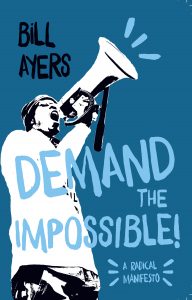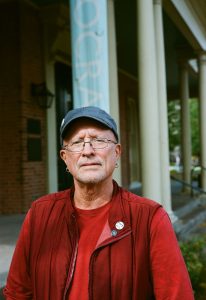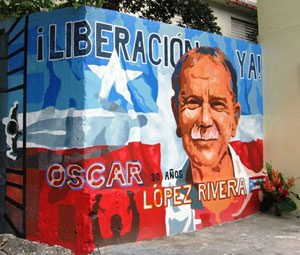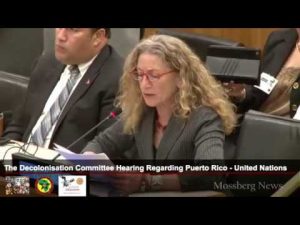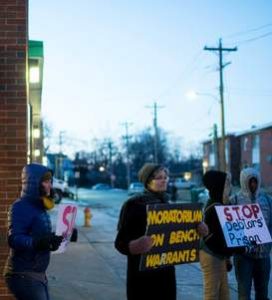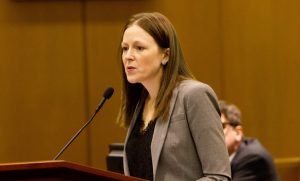Podcast: Play in new window | Download
Demand the Impossible! A Radical Manifesto
The presidential debate held last week between Donald Trump and Hillary Clinton allowed us to take a sober measure of the calamitous situation we find ourselves in 15 years after September 11, 2001. Our guest Bill Ayers just published Manifesto! Demand the Impossible. It presents a different vision from those sketched out by the candidates and the economic, political and cultural system which produced them. As Robin D. G. Kelly has written, “Bill Ayers vision for a humane future is incendiary – it incinerates old logics and illuminates new paths. If we do not end the violence of militarism, materialism, caging, dispossession, debts, want, ignorance, and global warming our very survival is impossible.”
Guest – Bill Ayers, Distinguished Professor of Education and Senior Bill AyersUniversity Scholar at the University of Illinois at Chicago (retired), member of the executive committee of the Faculty Senate and founder of both the Small Schools Workshop and the Center for Youth and Society, taught courses in interpretive and qualitative research, oral history, creative non-fiction, urban school change, and teaching and the modern predicament. A graduate of the University of Michigan, the Bank Street College of Education, Bennington College, and Teachers College, Columbia University, Ayers has written extensively about social justice, democracy and education, the cultural contexts of schooling, and teaching as an essentially intellectual, ethical, and political enterprise. He is a past vice-president of the curriculum studies division of the American Educational Research Association.
—-
Free Puerto Rican Nationalist Oscar López Rivera 2016
A growing movement is calling for the release of 72-year-old Puerto Rican Nationalist Oscar López Rivera, who has served 34 years in prison, 12 of which have been in solitary confinement. In 1980, 11 members of FALN were arrested for a series of bomb attacks on banks, government facilities and military sites across the U.S, in protest against the US colonization of Puerto Rico. Although named a co-defendant in the case, López Rivera was not arrested until a year later, picked up during a traffic stop, and charged with seditious conspiracy, weapons possession and transporting stolen vehicles across state lines. No evidence was ever found tying López Rivera to any of the bombings, and although he was not convicted of any violent crimes, he was sentenced to 55 years in federal prison. Fifteen more years were later added to his sentence for an alleged escape attempt.
Most Puerto Ricans and human rights advocates view López Rivera with enormous respect for his work as a civil rights activist and community organizer. He is a decorated war veteran, having been awarded the Bronze Star medal during his service in the US Army. In 1999, Bill Clinton offered all FALN members, including López Rivera, conditional clemency. López Rivera declined the offer because the deal included a condition that he serve an additional 10 years in prison, and because two of his co-defendants would be left behind. Supporters are now collecting signatures on a petition that asks Barack Obama to issue a presidential pardon that grants his immediate release.
Guests – Attorney Jan Susler from the People’s Law Office in Chicago. A longtime member of the National Lawyers Guild she has has represented Puerto Rican political prisoners for over three decades. Jan Susler joined People’s Law Office in 1982 after working for six years as a Clinical Law Professor at the legal clinic at Southern Illinois University’s School of Law, Prison Legal Aid. At the People’s Law Office she continued her litigation and advocacy work on prisoners’ rights issues and also took on representing people wrongfully imprisoned, falsely arrested, strip searched, or subjected to excessive force by police officers.
We are also joined by Alejandro Molina from the campaign to free Oscar López.
—-
Debtors Prison In The South
It has been nearly 200 years since this country abolished the practice of imprisoning those who fail to pay their debts. Recently, however, many impoverished persons face the modern equivalent of debtors’ prisons in the form of unfair legal practices. More and more courts are charging fees to those convicted of crimes, including fees for public defenders, prosecutors, court administration, jail operation, and probation supervision. Aggressive, and often illegal, tactics are employed to collect unpaid fines and fees, including for traffic offenses and other low-level offenses. These courts have ordered the arrest and jailing of people who lag behind in payments, without offering hearings to determine an individual’s ability to pay or to provide alternatives to payment such as community service.
The human toll of these practices is enormous. Coercive debt collection means that poor individuals may forgo the basic necessities of life in order to avoid arrest. Debtors’ prisons increase government costs and waste taxpayer money by jailing people who may never be able to pay their debts. Finally, debtors’ prisons result in racial injustice and a two-tiered system of justice in which the poor receive harsher, longer punishments for committing the same crimes as the wealthy.
Guest – Attorney Sarah Geraghty, managing attorney of the Impact Litigation Unit at the Southern Center for Human Rights. Sarah practices in the areas of civil rights, habeas corpus, and class action litigation aimed at improving fairness and conditions in the criminal justice system. She has litigated cases challenging inhumane prison conditions, unfair police treatment, open records law violations, denial of the right to counsel, and the incarceration of indigent persons for debt. In 2011, Sarah received the Indigent Defense Award from the Georgia Association of Criminal Defense Lawyers. She was listed by the Fulton County Daily Report as an “On the Rise Georgia lawyer under 40”. She received her J.D. from the University of Michigan Law School, her M.S.W. from the University of Michigan School of Social Work, and her B.A. from Northwestern University. She is a member of the Alabama, Georgia, Illinois and New York bars.
————————————————————-
